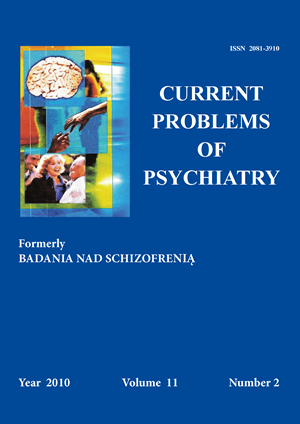Post-traumatic stress disorder
Keywords:
Post-traumatic stress disorder, anxietyAbstract
Post-traumatic stress disorder develops as a delayed and prolonged response to strong short-term or longer-term stressors which act destructively on every person regardless of their resilience
Three different factors seem to be relevant: the severity and duration of the stressing event, the personal and emotional characteristics of the victim, and the degree of psychological support received after the trauma.
Post-traumatic stress disorder must be differentiated from other mental disorders such as brief psychotic disorder, conversion disorder, major depressive disorder, acute stress disorder, obsessive compulsive disorder, schizophrenia, other psychotic disorders, mood disorder with psychotic features, a delirium, substance-induced disorders, psychotic disorders due to a general medical condition, and malingering.
References
1. Lacey G.N. Observations on Aberfan. J. Psychosom. Research, 1972, 16, ss.257-260.
2. Herman J.L., Schatzow E. Recovery and verification of memories of childhood sexual trauma. Psychoanalytic Psychology, 1987 4, ss.1-14.
3. Briere J., Conte J. Self-reported amnesia for abuse in adults molested as children. Journal of Traumatic Stress, 1993, 6, ss.21-31.
4. Williams L.M., Banyard V.L. Gender and recall of child sexual abuse. A prospective study. W: J.D. Read, D.S. Lindsay (red.), Recollections of trauma: Scientific evidence and clinical practice. New York, Plenum Press, 1997 ss. 371-377.
5. Dąbkowska M.: Udział czynników genetycznych w etiologii zespołu stresu pourazowego, Postępy Psychiatrii i Neurologii, 2007, 16, 2, 149-153


